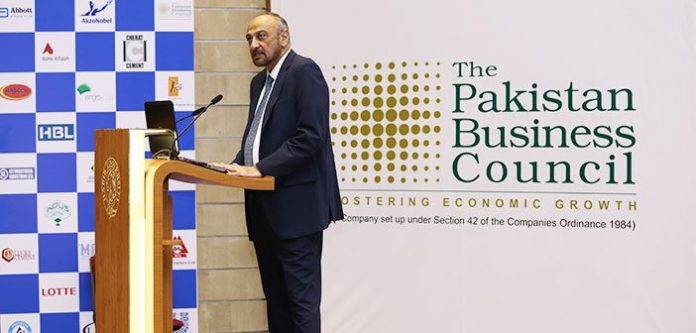— Council suggests comprehensive review of import valuations to stem misuse and under-invoicing
Pakistan Business Council (PBC) has urged the government that protocols for Electronic Data Interchange should be agreed with all the main trading partners in order to stop an estimated annual under-invoicing of $5 billion.
PBC wrote a letter to Finance Minister Asad Umar proposing several reforms to revive the sagging industry. The council drew the government’s attention on the immediate need to improve fiscal position which would ultimately help the country increase exports, revenue collection and tax base.
The letter said that a comprehensive review of import valuations is necessary to stem misuse and under-invoicing, adding that import duty at higher value, weight, volume or quantity should apply.
“There should be no easy ways made in favour of commercial importers at the expense of manufacturers. Cascading tariffs are vital for promotion of local value addition by the manufacturing sector,” it added.
The letter further advised that regulatory duty should not be levied on raw materials for manufacturing in Pakistan, especially when there was no regulatory duty on finished goods. Regarding the tax regime, the council said that the penal tax rates applicable to non-filers are not substantially higher than for filers.
“A margin of 3:1 should apply to encourage more people to join the tax base. The federal and provincial governments urgently need to address the fragmentation and complexity arising from multiple taxes. Unification of taxes, digitization and centralization of tax collection and simplification of returns will help bring down the cost and make it easier to do business,” the council stated.
The export sectors, especially textiles, are facing cash flow issues on account of delayed refunds, particularly of sales tax, PBC wrote, requesting that at the minimum, ‘five’ export sectors should be moved to ‘zero rating’ to ensure that the export sectors don’t feel a cash-flow crunch on account of delayed refunds.
PBC suggested that automation of rebate credits to coincide with realization of export proceeds will also help. The letter further pointed out that the concept of group taxation was introduced in Pakistan on the basis of a detailed study carried out by the “Task force for the review of Law relating to Holding Companies”, constituted by the then Central Board of Revenue in 2006 and which included representatives of the Securities and Exchange Commission of Pakistan, Institute of Chartered Accountants of Pakistan, Central Board of Revenue and Pakistan Business Council.
“The recommendations of the task force were duly incorporated through the Finance Act, 2007. This was an important initiative for Pakistan’s taxation system and economy, aimed at streamlining the group ownership structures and discouraging the complicated cross-company ownership to make the corporate sector internationally transparent and competitive. It has helped in promoting documentation, fostering corporatization, allowed corporate entities to grow into conglomerates and minority shareholders participate.
The implementation of the task force recommendations prompted considerable structural changes are groups formed holding companies, stepped up investment, created employment and offered opportunities to outside investors to participate in listed subsidiaries of well-run groups. This has also resulted in the broadening of the capital market and let to substantial in tax revenues,” the PBC concluded.




